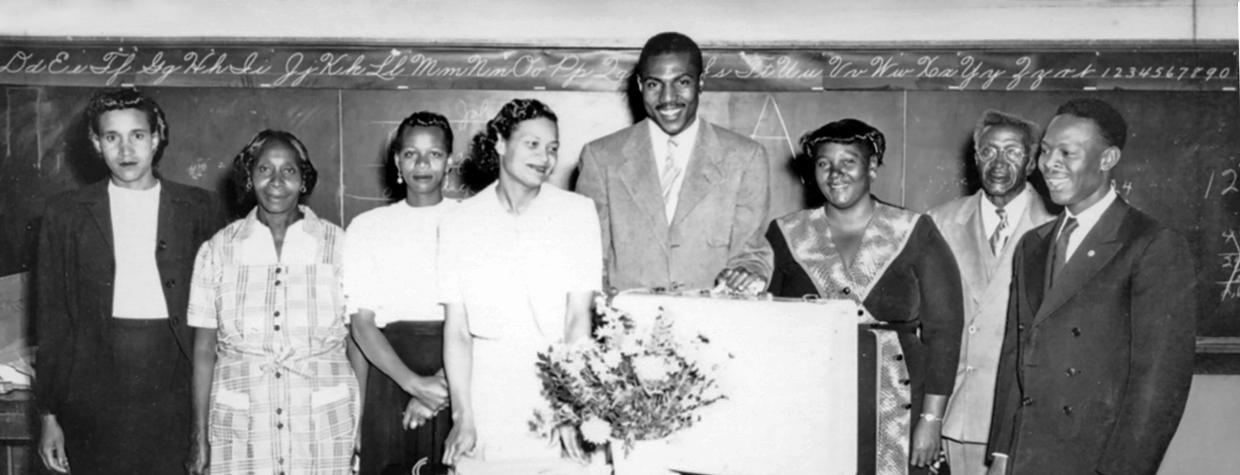THERE ARE AS MANY SUCCESS STORIES as there are successful people. But they’re often inspired by a great teacher. Wilson Riles knew that better than most. Born in 1917 at a sawmill camp in what he called “the backwoods of Louisiana,” Riles lost both parents by age 12. With help from his church, he attended high school in New Orleans. Moving to Flagstaff with his adopted family after graduation, he became the first Black student to attend what would later become Northern Arizona University — and has been honored as one of the university’s most distinguished alumni.
Awarded nine honorary doctorate degrees (including one from NAU), Riles helped desegregate Flagstaff schools a year before segregation was outlawed and served as chairman of a federal task force on urban education. NAU recognized the educator with two distinguished alumni awards and, in 1987, named a building in his honor. Recently, Flagstaff renamed a downtown street after him.
“I didn’t even know there was a college here,” Riles said in a 1996 interview. “I knew I couldn’t go anyhow, because I had no money. But I passed … a little one-room, segregated school called Dunbar School one day. And, [me] being a stranger, the teacher there saw me and asked me questions. I told her I was looking for a job. I wanted to go to college. She says, ‘Why don’t you go here? I’m going to send you over to talk to the registrar.’ … Walking over, I said, ‘This woman must be out of her mind. I don’t have one penny, and she’s sending me to the registrar.’ ”
But NAU, which then was called Arizona State Teachers College, had just received a grant that allowed Riles to work for 25 cents an hour, enough to pay for tuition and books. After graduating, he landed a teaching job near the lumber town of McNary. A teacher drove him to the interview.
Riles served in World War II, then returned to Arizona, completed his master’s degree and became principal of Dunbar School. When desegregation shuttered the school, Riles moved to California, where he eventually served as superintendent of public instruction, becoming the first Black person elected to statewide office in California.
Remembering how his teachers had helped him, Riles did the same for his students. “I felt that I owed that to them,” he said. Before his death in 1999, he funded an endowment to allow disadvantaged students to earn money while attending NAU, just as he had.

